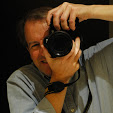Times Higher Education - In Defense of Lost Causes: "Most compelling here, however, is Zizek's engagement with ecological crisis - arguing that the looming threat of environmental ruin necessitates collective revolutionary action on the scale of Robespierre or the Bolsheviks. The worst possible path here, he demonstrates, following a formula that captures the spirit of the work as a whole, is 'the middle position, taking a limited number of measures', where we 'fail whatever happens'."
Source:
15.12.08
12.12.08
The Silence of Lorna, Jean-Pierre and Luc Dardenne, 105 mins
The Silence of Lorna, Jean-Pierre and Luc Dardenne, 105 mins, 15<br>To Get to Heaven First You Have to Die, Djamshed Usmonov, 95 mins, 15 - Reviews, Films - The Independent: "Consider this column a tribute to the great American film critic Manny Farber, who died earlier this year. In an influential essay of 1962, Farber proposed a distinction between what he called 'white elephant art' and 'termite art'."
Source:
Source:
14.11.08
The harsh lesson of Afghanistan: little has changed in 200 years
The harsh lesson of Afghanistan: little has changed in 200 years | Ben Macintyre - Times Online"“We are content with discord, we are content with alarms, we are content with blood,” the old man said. “But we will never be content with a master.”"
15.2.08
Flickr: Discussing What are you listening to right now as you type? in Utata
I am listening to the quirky, delightful jazz- style cello plucking Block Ice Propane by Eric Friedlander. The inspiration for his music came during summer road trips when his father Lee Friedlander would stop and take pictures. There is a good interview and some of Eric Friedlander's music on NPR"
Source:
Source:
28.1.08
The Fallacy of Hypothesis Testing
THE WORLD QUESTION CENTER 2008 — Page 2: "IRENE PEPPERBERG
Research Associate, Psychology, Harvard University; Author, The Alex Studies
The Fallacy of Hypothesis Testing
I've begun to rethink the way we teach students to engage in scientific research. I was trained, as a chemist, to use the classic scientific method: Devise a testable hypothesis, and then design an experiment to see if the hypothesis is correct or not. And I was told that this method is equally valid for the social sciences. I've changed my mind that this is the best way to do science. I have three reasons for this change of mind."
Source:
Research Associate, Psychology, Harvard University; Author, The Alex Studies
The Fallacy of Hypothesis Testing
I've begun to rethink the way we teach students to engage in scientific research. I was trained, as a chemist, to use the classic scientific method: Devise a testable hypothesis, and then design an experiment to see if the hypothesis is correct or not. And I was told that this method is equally valid for the social sciences. I've changed my mind that this is the best way to do science. I have three reasons for this change of mind."
Source:
17.1.08
James Fallows (November 27, 2007) - "The" way vs "a" way (Japan v China dept)
James Fallows (November 27, 2007) - "The" way vs "a" way (Japan v China dept): "Details to notice below: crew identically dressed in company uniform; complete safety gear -- hardhats, reflective chest straps with procedural checklist clipped on, puffy protective cuff to shield the plane's wing from damage."
Source:
Source:
Subscribe to:
Comments (Atom)
